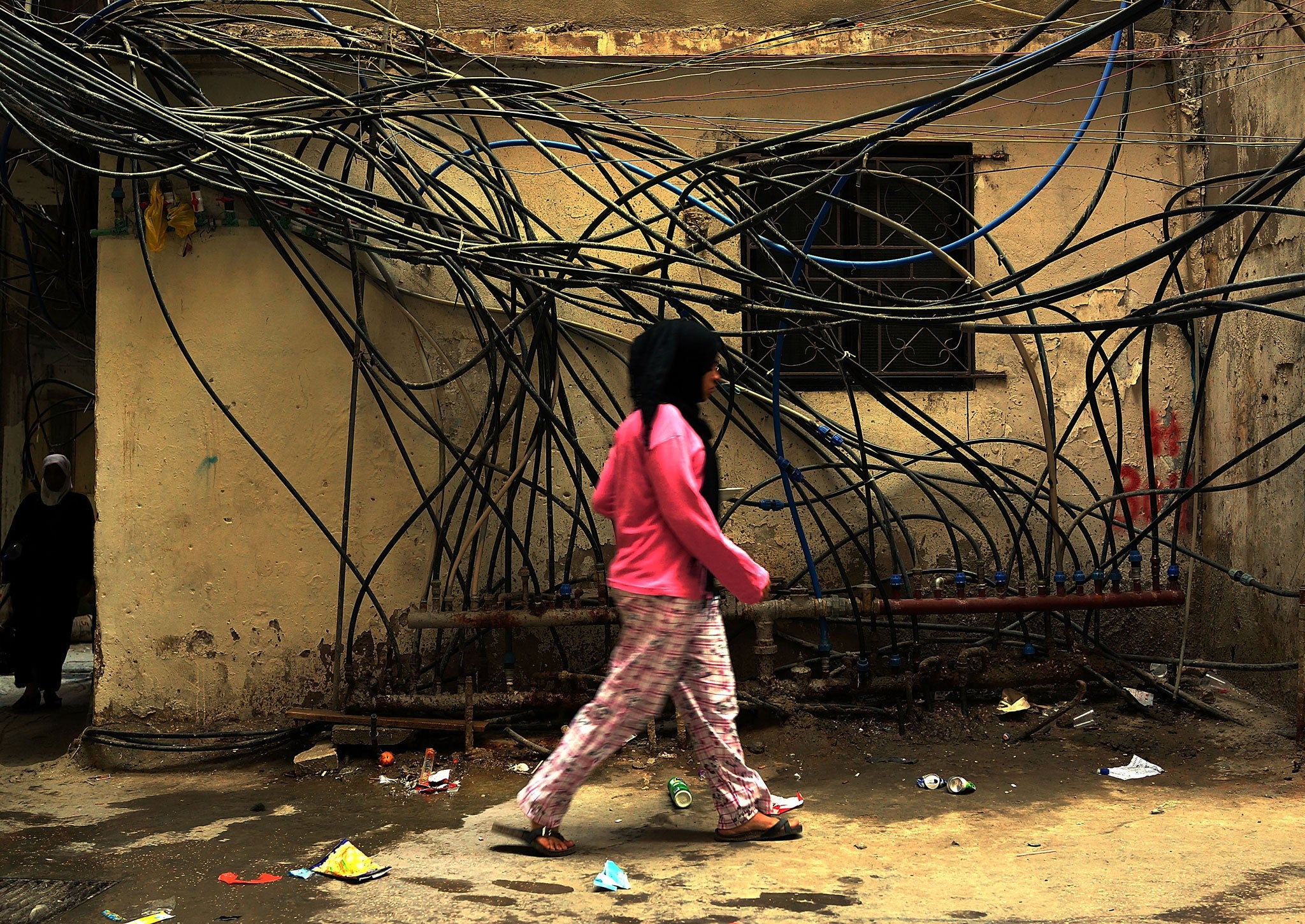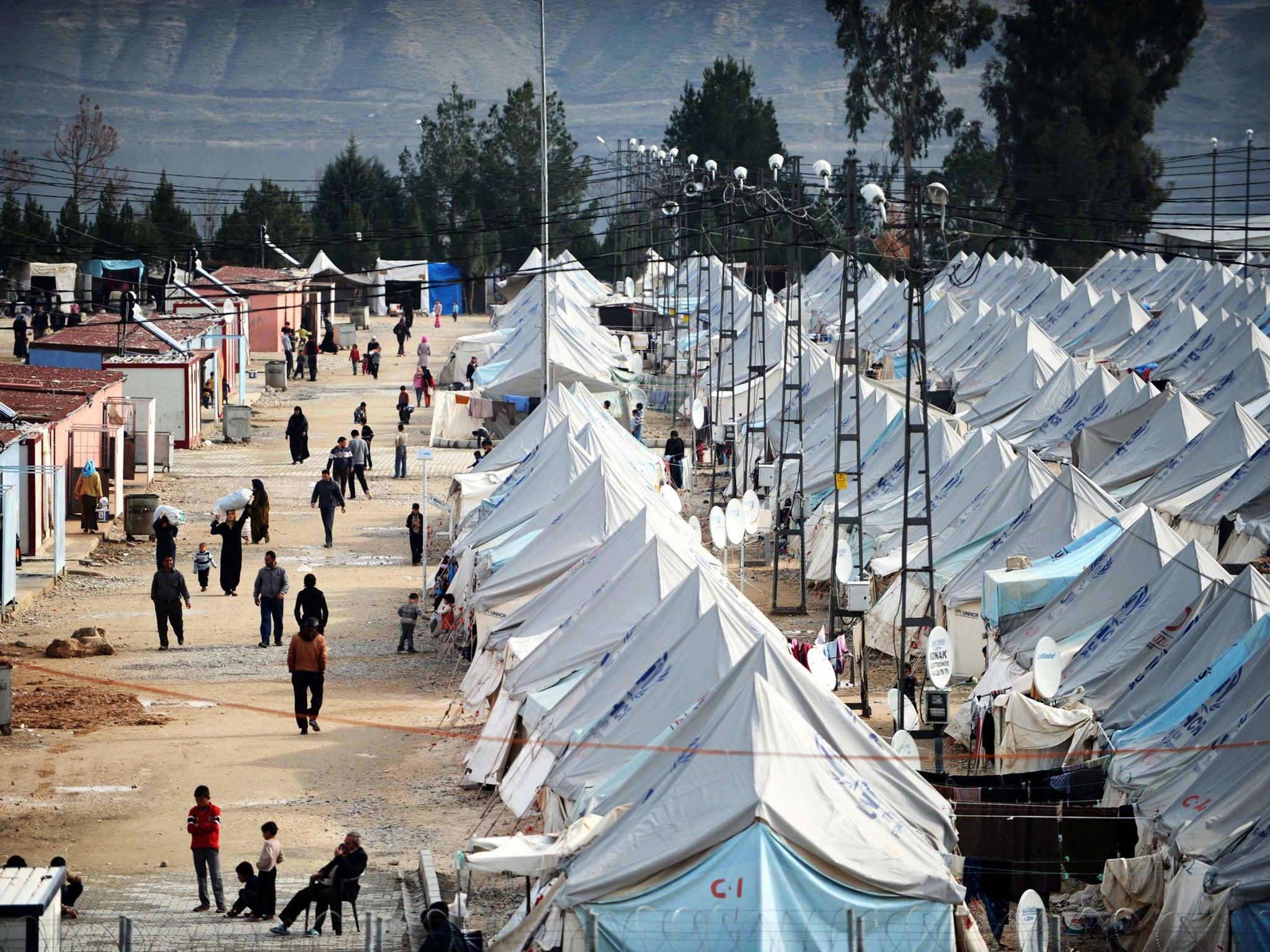The plight of Syria's refugees transcends party politics. What’s worrying is that Nigel Farage realised that before our Prime Minister
Mr Cameron, unlike Ukip's leader, is a prisoner of strict party discipline


Your support helps us to tell the story
From reproductive rights to climate change to Big Tech, The Independent is on the ground when the story is developing. Whether it's investigating the financials of Elon Musk's pro-Trump PAC or producing our latest documentary, 'The A Word', which shines a light on the American women fighting for reproductive rights, we know how important it is to parse out the facts from the messaging.
At such a critical moment in US history, we need reporters on the ground. Your donation allows us to keep sending journalists to speak to both sides of the story.
The Independent is trusted by Americans across the entire political spectrum. And unlike many other quality news outlets, we choose not to lock Americans out of our reporting and analysis with paywalls. We believe quality journalism should be available to everyone, paid for by those who can afford it.
Your support makes all the difference.At last, some movement from the Prime Minister on admitting a small number of Syrian refugees to this country. He is just beginning to recognise the moral case. In what I think must have been a bit of a panic, he told the House of Commons on Wednesday: “If there are very difficult cases of people who don’t belong in refugee camps who have either been disabled by these dreadful attacks, or are in very difficult circumstances, I am happy for us to look at that argument.”
Leave aside for the moment that Nigel Farage, leader of the UK Independence Party, got to the same point three weeks ago, and study David Cameron’s words. What is this category of people “who don’t belong in refugees camps”? If you and your family are crossing the Syrian border in haste, the only place you can go to is a refugee camp. Does “disabled” mean injured, or forced to leave your home?
Evidently the Prime Minister was rattled, blurting out the first things that came into his mind. Compare what he said with Mr Farage’s words on 29 December. “I think refugees are a very different thing to economic migration… and I think, actually, there is a responsibility on all of us in the free West to try to help some of those people fleeing Syria, literally in fear of their lives.” He added it was time for “a proper debate” about “the difference between a refugee – who fears for his or her life – or somebody moving simply for economic benefit”.
The difference between the two statements is striking. Both men are marching towards the most important election battles of their lives, where their troops will be fighting each other hand to hand. These are the European Parliament elections due to be held on Thursday 22 May 2014 and the general election on 7 May 2015. Nonetheless, Mr Farage was prepared to voice sentiments that he must have known would surprise his followers and would probably disappoint many of them. And he put forward a reasoned argument for his position.
Mr Cameron, on the other hand, is a prisoner of strict party discipline. Everything must conform to the line – in this case, “immigration bad, keep the gates tightly locked”. Moral arguments, whether they concern, say, the bedroom tax part of welfare reform or, in this case, desperate Syrian refugees, are to be avoided at all costs. And when the Prime Minister does have to confront one, he starts talking gibberish to hide his confusion. Here, then, are the arguments for the more generous approach.

As the shadow Home Secretary, Yvette Cooper, told the House of Commons on Monday, the UN programme, which asks Western nations to accept 30,000 of the 2.3 million Syrians who have fled their country, “is for those whom the UN believes will find it hardest to survive in the camps in the region, such as abandoned children who have no other protection or support; torture victims, who may be suffering immense physical and mental distress; those who need urgent medical help; mothers of young children who have lost their husbands and relatives and are vulnerable; and those who have been abused in the camps. They are not asylum seekers. They cannot travel here or elsewhere to apply for asylum. They are already UN-certified refugees.” Pretty clear.
The moral case for admitting, say, 500 Syrian refugees, is being put at its most effective in a play, Kindertransport Live, that is being performed at railway stations and theatres across the country to mark the 75th anniversary of the Kindertransport. This was a programme that gave 10,000 Jewish children – and only children – safe passage to the UK. The British government introduced it in November 1938 after nights of violence against Jews across Germany and Austria. The play recalls the journey of these child evacuees.
We all know the scale of the Holocaust, but Kindertransport made a difference and saved many thousands of lives. That is the point. The play continues its tour until 30 March.
'No room at the inn': Britain condemned for turning its back on Syria's refugees
Yette Cooper: The situation for Syria's refugees is desperate. Our Government must now sign up to the UN's resettlement plan
Join our commenting forum
Join thought-provoking conversations, follow other Independent readers and see their replies
Comments